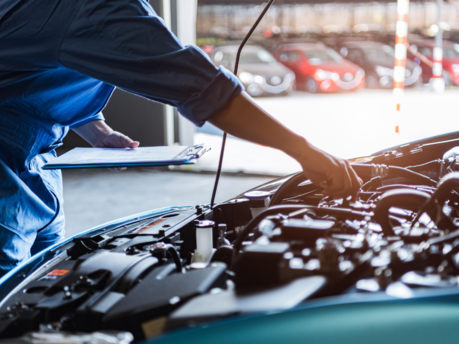Answering Automotive Queries: Top Car Maintenance Questions
In this article, we’ll explore some of the most frequently asked car maintenance questions by drivers. Getting answers to these common queries can help motorists keep their automobiles in top shape.
Owning a car comes with many responsibilities, including ensuring it is properly maintained and runs smoothly. However, for many motorists, questions arise about the best practices for taking care of their vehicles. From queries about checking oil levels to when brake pads need replacing, customers often turn to mechanics and dealerships for advice. In this article, we’ll explore some of the most frequently asked car maintenance questions by drivers. Getting answers to these common queries can help motorists keep their automobiles in top shape.
How Often Should I Get an MOT Test?
One of the most common questions regarding car maintenance is about the legal requirement for an MOT test. All cars over 3 years old require an MOT test every 12 months in order to legally drive on UK roads. This test checks important safety and environmental aspects of the vehicle, such as brakes, exhaust, lights, steering and more. Getting this annual test on time is crucial for the roadworthiness of any older vehicle. Tip - set a reminder on your phone for the following year 30 days before it’s due.
Check the status of your MOT here
When Do I Need to Change the Timing Belt?
The timing belt is an important engine component that needs replacing as part of regular maintenance. Customers often ask when it's time to replace their timing belt according to their car’s age and mileage. For most modern cars, mechanics recommend changing the timing belt every 60,000 – 100,000 miles or every 5-10 years. As this belt is crucial for engine function, it's imperative to change it as per the manufacturer's specifications.
Should I Use Premium or Regular Petrol?
With fuel prices continually fluctuating, many motorists want to know if premium petrol is worth the extra cost. In most regular cars, premium petrol is usually not necessary and offers little advantage over regular fuel. However, some high-performance, luxury and older vehicles often require higher octane premium petrol to prevent engine knocking. When unsure, check your owner’s manual for recommended fuel grade. Using lower octane fuel than advised can damage engines over time in incompatible vehicles. Most vehicles will have which fuel to use inside of the fuel cap making it easy to remember.
How Do I Check My Engine’s Oil Level?
One of the simplest but most vital checks between services is making sure your engine oil level is sufficient. UK customers frequently ask about the proper procedures for checking their vehicle’s oil level. In most vehicles, a dipstick is located under the bonnet for measuring oil levels. Simply park on level ground, turn off your engine, pull out the dipstick, wipe clean, reinsert fully, and then review oil mark measurements. Proper oil levels should fall between the “Full” and “Add” lines. Top up with the recommended oil if below.
Why is My Car Making Noise When Braking?
Hearing odd noises when applying the brakes often prompts concerns for many drivers. In such cases, motorists will commonly ask mechanics about these unfamiliar sounds and what could be causing them. Noisy brakes usually indicate wear on the brake pads, meaning they may need replacing. Sometimes a squealing or grinding noise appears when brakes are engaged. Get your brake pads inspected right away if new sounds emerge so any issues can be addressed.
How Often Should I Get an Oil Change?
Another point of confusion for car owners regards how many miles or months should elapse between oil changes. In the past, a 3,000-mile guideline was quite common. However, most modern engines with high-quality oils and filters can go much longer, with some cars only needing annual oil changes. Referring to your owner’s manual for your vehicle’s oil change frequency is always safest. Asking your local mechanic about optimal oil change intervals for your car's engine can also set your mind at ease between services, especially if it’s an older vehicle.
What Problems Can a Rattling Noise Indicate?
Hearing odd rattling, buzzing or hissing from under the bonnet while driving often raises concerns for motorists about what could be wrong with their car. A rattling noise usually means an issue with one of the pulleys or belts connected to engine components. Potential culprits making these sounds are the fan belt, power steering belt or serpentine belt. Have a mechanic inspect under-bonnet belts to diagnose the source of any unusual rattling noises right away to prevent extensive repairs later on.
How Often Should Coolant Be Changed?
Coolant or antifreeze protects engines from overheating and freezing weather extremes. As it degrades over time, drivers often wonder when to change their coolant. For most vehicles, draining and replacing engine coolant every 2-5 years or 30,000 – 60,000 miles serves as a good guideline. Read your owner's manuals too, as some manufacturers advise changing coolant more or less frequently. Note any leaks, odd smells or cooling issues also serve as indicators for servicing cooling systems.
Conclusion
These represent some of the most frequently posed queries by vehicle owners about critical car maintenance and repairs. While manufacturers provide recommendations, speaking to mechanics can give helpful insights into addressing common vehicle issues. From the importance of MOT certificates to rattling engine noises, it’s important to understand best practices for vehicle care and roadworthiness. Knowing what problems to look out for and which components require replacement empowers drivers to make informed decisions. Reference your owner’s manuals, ask professionals and continue educating yourself on maintenance schedules. Making the effort to properly service vehicles prevents extensive repairs further on.

